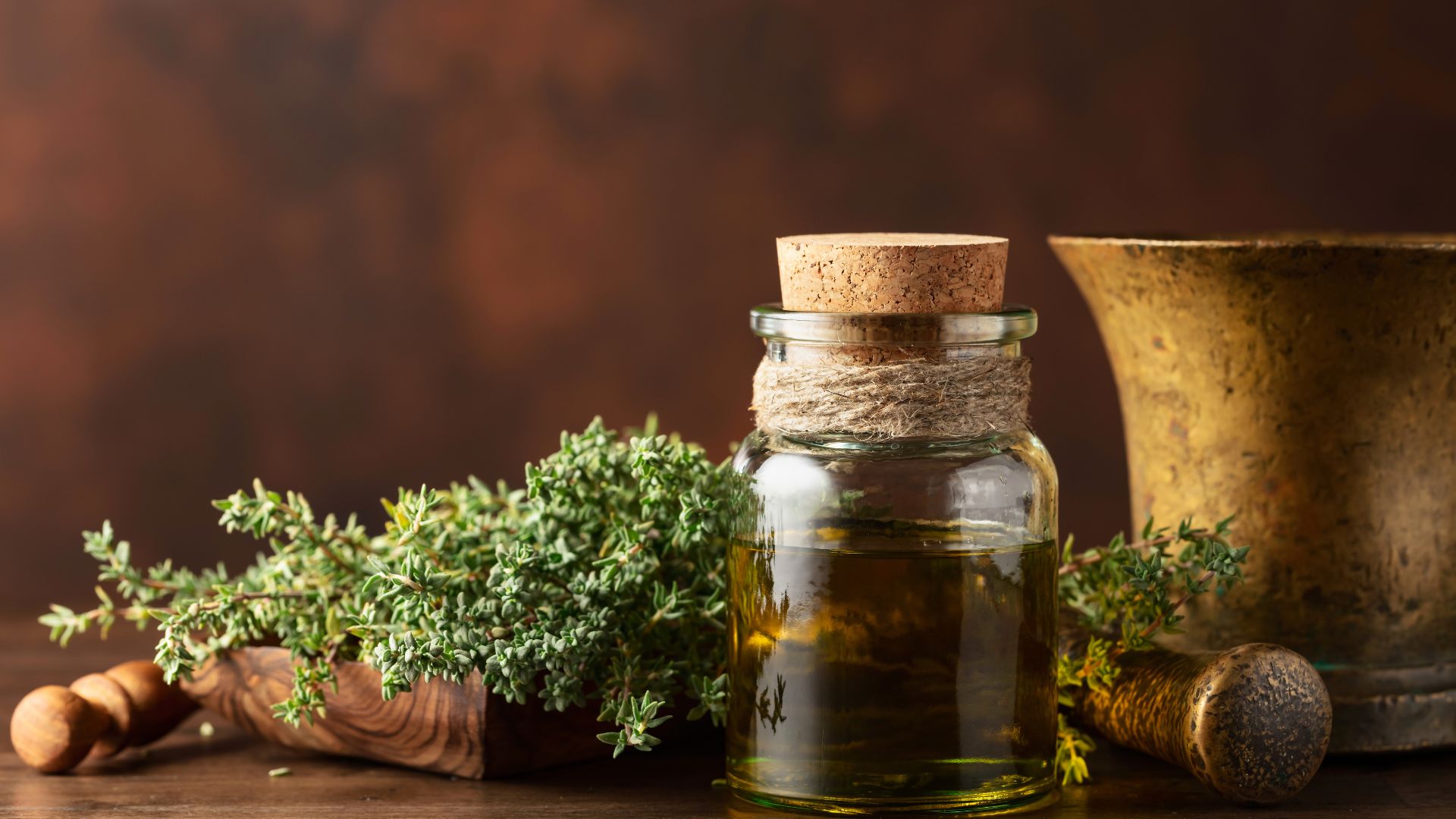Ever walked through your garden and caught that distinctive, earthy-sweet aroma of thyme? This humble herb, which many of us sprinkle into our soups and stews without a second thought, has been quietly working medicinal wonders for thousands of years. As someone who’s spent years studying herbal medicine and natural remedies, I’m excited to share the fascinating world of thyme’s healing properties.
The Rich History of Thyme in Medicine
Before we dive into the science, let’s take a moment to appreciate thyme’s remarkable journey through history. Ancient Egyptians used it in their embalming practices, while medieval Europeans placed it under their pillows to ward off nightmares and promote peaceful sleep. The Romans believed thyme could protect against poison and would even bathe in it before heading into battle. Pretty impressive for a tiny herb, right?
Active Compounds: The Science Behind Thyme’s Power
The Magic of Thymol
At the heart of thyme’s medicinal properties lies thymol, a powerful natural compound that gives the herb its distinctive smell. But thymol isn’t just about the aroma – it’s a potent antimicrobial agent that can fight off harmful bacteria and fungi. Research has shown that thymol can be as effective as some commercial antiseptics, but with the added benefit of being completely natural.
Other Beneficial Compounds
Beyond thymol, thyme contains:
- Carvacrol: A natural antimicrobial agent
- Rosmarinic acid: A powerful antioxidant
- Flavonoids: Plant compounds with anti-inflammatory properties
- Essential oils: Complex mixtures of beneficial compounds
Top 7 Evidence-Based Health Benefits of Thyme
1. Respiratory Health Support
If you’ve ever had a persistent cough, thyme might be your new best friend. The herb works as an expectorant, helping to clear congestion and soothe irritated airways. Studies have shown that thyme, combined with ivy leaves, can significantly reduce coughing fits and improve breathing in people with acute bronchitis.
2. Immune System Boost
Think of thyme as your immune system’s personal trainer. Its high vitamin C content, coupled with its antimicrobial properties, helps your body fight off invaders more effectively. Regular consumption of thyme can help strengthen your natural defenses against common illnesses.
3. Digestive Health Enhancement
Struggling with digestive issues? Thyme has been shown to help reduce inflammation in the digestive tract and support healthy gut bacteria. It can also help relieve bloating and gas – something we could all use help with from time to time!
4. Skin Health Support
The antimicrobial properties of thyme make it an excellent natural remedy for skin conditions. Whether you’re dealing with acne, minor cuts, or fungal infections, thyme-based treatments can help speed up healing and prevent infection.
5. Mental Health Benefits
Here’s something fascinating: research suggests that thyme essential oil may help reduce stress and anxiety. The herb contains compounds that interact with GABA receptors in your brain, promoting relaxation without causing drowsiness.
6. Anti-inflammatory Properties
Chronic inflammation is at the root of many modern health issues. Thyme’s natural anti-inflammatory compounds can help reduce inflammation throughout the body, potentially helping with conditions ranging from arthritis to inflammatory skin conditions.
7. Antioxidant Protection
Free radicals, meet your match! Thyme is packed with antioxidants that help protect your cells from oxidative stress. This protection may help reduce the risk of certain chronic diseases and support overall health and longevity.
How to Include More Thyme in Your Daily Routine
Culinary Uses
- Add fresh thyme to soups, stews, and roasted vegetables
- Infuse olive oil with thyme for a flavorful cooking base
- Include thyme in marinades for meat and fish
- Sprinkle dried thyme into egg dishes and casseroles
Medicinal Applications
- Brew thyme tea for respiratory support (steep 1-2 teaspoons of dried thyme in hot water for 10 minutes)
- Create a thyme-infused honey for sore throats
- Make a thyme tincture for immune support
- Use thyme essential oil in a diffuser for respiratory benefits
Safety Considerations and Precautions
While thyme is generally safe for most people, it’s important to note a few precautions:
- Pregnant women should consult their healthcare provider before using thyme medicinally
- Those with hormone-sensitive conditions should use thyme in moderation
- Always do a patch test before applying thyme topically
- Start with small amounts when consuming thyme medicinally to ensure no adverse reactions
Growing Your Own Medicinal Thyme
One of the best ways to ensure access to high-quality thyme is to grow your own. Thyme is relatively easy to cultivate and can thrive in most climates. Plant it in well-draining soil in a sunny spot, and you’ll have a constant supply of this medicinal powerhouse right at your fingertips.
The Future of Thyme in Modern Medicine
Scientists continue to discover new potential applications for thyme in modern medicine. Recent research has explored its possible role in:
- Natural food preservation
- Alternative antibiotic development
- Cancer prevention studies
- Treatment of antibiotic-resistant bacteria
Embracing Thyme’s Healing Power
As we face increasing antibiotic resistance and seek more natural approaches to health, thyme stands out as a versatile and powerful medicinal herb. Its combination of antimicrobial, anti-inflammatory, and antioxidant properties makes it a valuable addition to any natural health toolkit.
Whether you’re fighting off a cold, looking to support your digestive health, or simply wanting to boost your overall wellness, consider adding more thyme to your daily routine. This modest herb might just be the natural remedy you’ve been searching for.
Remember, while thyme offers impressive health benefits, it’s always wise to consult with healthcare professionals before using any herb medicinally, especially if you have underlying health conditions or are taking medications. Nature’s medicine cabinet is powerful, but it should be approached with knowledge and respect.



